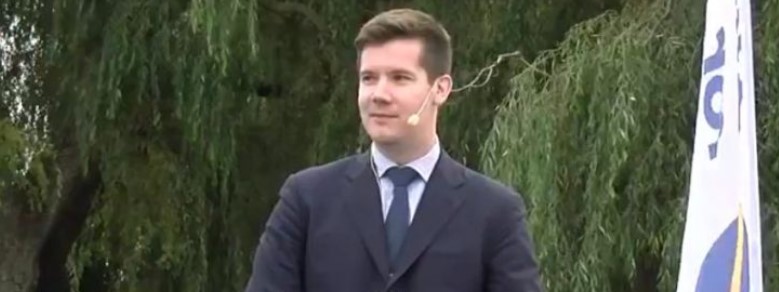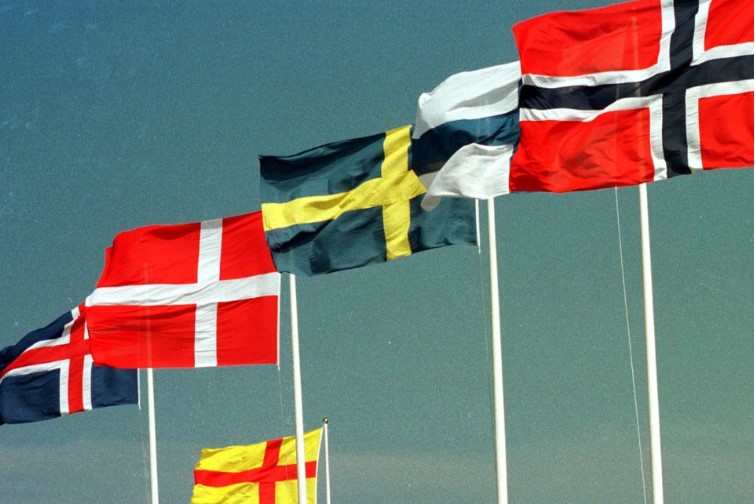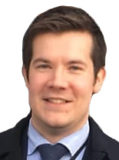Sakari Linden, Foreign Policy Advisor of the group Europe of Nations and Freedom in the European Parliament, argues that in order to become a stable and prosperous geopolitical unit of its own, the Nordic region should be militarily neutral, thus making it an attractive partner in international relations and trade.
The Nordic countries have had times of unity and disunity. The wider European integration project has emphasized the importance of economic and political centers of Western Europe since the 1990s and left aside cooperation between the Nordic countries. However, the problems arising from European integration can become an opportunity for Nordic cooperation.
From the Kalmar Union to the era of European integration
The Kalmar Union is still considered to be the golden era of Nordic unity. It lasted from 1397 to 1523, even though there were several interruptions during the time that the union existed.
A new golden era of Nordic cooperation started after the Second World War. The results of Nordic cooperation included the building of a passport-free travel area in 1952, the creation of the Nordic labour market in 1954, as well as the implementation of the Nordic Convention on Social Security in 1955.
Finnish and Swedish membership in the European Union conclusively signaled the end of that era. European integration replaced Nordic cooperation as the main pillar of the Nordic countries’ international strategy.
Almost 25 years after the paradigm shift by Finland and Sweden, Europe looks very different. The European Union is floundering and the United Kingdom will soon become the first member state to leave the EU.
The European integration has reached a stalemate and is being torn apart by several centrifugal forces, i.e. differing views on migration, economic and monetary policies as well as foreign and security policies. It is no wonder, since there has never been a single political centre in Europe.
The Nordic countries in the era of European turmoil
The crisis of the European Union could turn into an opportunity to revive Nordic cooperation, which has slumbered since the mid-1990s. Deepening cooperation between neighboring countries is an alternative for European-wide integration. Thus, different European regions, e.g. the Nordic region, could establish its own European macro region.
The deepening of integration on a regional basis, stems from a simple idea that geographically proximate states share a common history, values and goals in many instances. Nordic cooperation could be a mid-level option for Nordic countries, situated somewhere between individual nation states and an EU federation.
However, the constraints stemming from the memories of history should be kept in mind. Nordic countries are different, and they should not be put in a single mould.
It is a Nordic, not only a Scandinavian region!
The ultimate success of reviving the significance of the Nordic dimension by forming a Nordic geopolitical unit, is conditional. In order for Nordic cooperation to succeed, it has to be acknowledged that the Nordic community is not only Scandinavian, i.e. not only the Scandinavian peninsula of Norway and Sweden plus Denmark, but also Finland, Iceland, Greenland and the Faroe Islands.
Chairman of the Suomalaisuuden Liitto (Association of Finnish Culture and Identity, Finskhetens Förbund), Professor Emeritus Ilmari Rostila has written an article about the foreign policy background for the linguistic policy of Finland. According to Rostila, Sweden and the Nordic countries, as a prerequisite for Finland’s adherence to the Nordic bloc, required that there be a ”language peace” in Finland, which, according to Swedish media, was meant to keep Swedish as an obligatory subject in Finnish schools.
The Nordic linguistic and cultural diversity should be recognised in order to make Nordic cooperation sustainable and enable Nordic countries to exist as a geopolitical unit. Nordic cooperation can function with the help of other lingua franca or translation.
The Swedish language definitely has a place in Finland. Consequently, Swedish-speakers’ linguistic rights and public services in their own languages should be guaranteed. Moreover, Sami indigenous languages should be protected, as well as Meänkieli in Northern Sweden and Kven in Northern Norway.
The Nordic countries in the dawn of a new geopolitical era
Geographically speaking, Nordic countries are strategically situated between the Russian landmass, the European mainland, and the Atlantic Ocean and the North American continent. A neutral macro region, which does not want outside powers to interfere in its affairs, would benefit from other great powers’ support against any great power in case of military aggression. Yugoslavia relied on this strategy during the Cold War in its balancing act between NATO and the Warsaw Pact.
Finland cannot be compared to Poland, the Baltic countries or Sweden in its anti-Russian bias, although its current foreign and security policy line is strongly Western-oriented. The fact that control of Finland passed from Sweden to Russia in 1809, increased its level of autonomy, strengthened the sense of a Finnish identity and made Finnish a language of culture and literature. A strategically close relationship with the Soviet Union during the Cold War was economically beneficial for Finland and strengthened Finland’s status as an independent state in a non-aligned position between West and East.
Therefore, history teaches us that Finland was not forced to look for Nordic allies, even though a neutral Nordic macro region would be an ideal choice for it. Moreover, a de facto alliance between Russia and China means that Russia can be a gateway to China and its huge markets, which makes an orientation towards the East more attractive.
In order to become a stable and prosperous geopolitical unit of its own, the Nordic region should be militarily neutral. This would require that Denmark and Norway abandon their memberships of NATO. Simultaneously, Finland and Sweden should abandon their bilateral military treaties with two leading Atlantic states, the US and the UK. Military neutrality and exclusion of outside great power’s interests would make the Nordic region an attractive partner in international relations and trade.
Can Nordic cooperation fulfill its promises?
Opportunities for the revival of Nordic cooperation and for the formation of a Nordic geopolitical unit, does not seem realistic at the moment. Firstly, all Nordic countries should be attractive partners to each other in order to make the new rise of Nordic cooperation a success. It seems that Norway takes care of its wealth and Denmark is able to defend its interests. But if Sweden has destabilized its society with excessive and the wrong kind of migration and Finland has atrophied its economy as a Eurozone member state, they cannot expect other Nordic countries to base their international strategy on cooperation with them.
Secondly, Denmark, Iceland and Norway are currently NATO members. Moreover, Finland and Sweden also have, to an increasing extent, aligned their foreign policies to support Euro-Atlantic interests. The two countries have concluded bilateral defense treaties with the leading Atlantic military powers, the United States and the United Kingdom. These defense treaties give an impression that the Nordic region is not an independent geopolitical unit, but that it has submitted to outside interests. The burden of belonging to the Euro-Atlantic community, could include defending the Baltic territorial integrity. Is this really what Nordic countries want? It remains a pivotal question.
The willingness of the Nordic community to become the appropriately diverse and unified geopolitical unit, which aims to keep outside interests out and preserve its countries’ sovereignty, will determine the future of the Nordic region. As an alternative to a macro region consisting of independent and neutral nation states, there is the region with the presence of opposing great powers pursuing their own, possibly intrusive, interests.
The writer/author is a Foreign Policy Advisor of the Europe of Nations and Freedom in the European Parliament
The views and opinions expressed in this article are those of the author. They do not purport to reflect the opinions or views of any other actor.


















